Summary
Comment
We view election betting markets as real-time polls. They aggregate all known information (or consensus thinking) in a format that can instantly change to new information. Poll aggregation does the same thing but takes more time and effort. We do not view election betting as having a special ability to predict the future, but it can tell us which events matter and which events do not.
Presidential election betting traces back to George Washington’s election. From 1868 to 1924, the New York Stock Exchange regularly listed presidential futures. This contract would approach 30% of all NYSE volume in the weeks leading up to the election. In the pre-poll era (George Gallup started modern polls in 1936), newspapers around the country would regularly quote election markets.
- University of Texas – Markets vs. polls as election predictors: An historical assessment
his paper assesses the accuracy of US presidential election betting markets in years before and after opinion polling was introduced. Our results are provocative. First, we find that market prices are far better predictors in the period without polls than when polls were available. Second, we find that market prices of the pre-poll era predicted elections almost on par with polls following the introduction of scientific polling. Finally, when we have both market prices and polls, prices add nothing to election prediction beyond polls. To be sure, early election markets were (surprisingly) good at extracting campaign information without scientific polling to guide them. For more recent markets, candidate prices largely follow the polls. - Journal 0f Economic Prospective – Historical Presidential Betting Markets
A large, active and highly public market for betting on elections existed over much of U.S. history before the Second World War. 2 Contemporaries noted this activity dated back to the election of Washington and existed in organized markets (such as financial exchanges and poolrooms) since the administration of Lincoln. Although election betting was often illegal, the activity was openly conducted by “ betting commissioners ” (essentially bookmakers) and employed standardized contracts that promised a fixed dollar payment if the designated candidate won office. The standard practice was for the betting commissioner to hold the stakes of both parties and charge a 5 percent commission on the winnings. - University of North Carolina – The Long History of Political Betting Markets: An International Perspective
Political future markets, in which investors bet on election outcomes, are often thought a recent invention. Such markets in fact have a long history in many Western countries. This paper trace s the operation of political futures markets back to 16th Century Italy, 18th Century Britain and Ireland, 19th Century Canada , and 20th Century Australia and Singapore. In the United States, election betting was a common part of political campaigns in the pre-1860 period, but became increasingly concentrated in the organized futures markets in New York City over the post-1860 period.
How does this compare to previous election cycles?
On December 23, 2015, Ted Cruz was leading for the 2016 Republican nomination. His odds were trading at 38%, almost identical to Biden’s odds today.
Trump’s odds were roughly 27% at the time.
On December 23, 2015, Hillary Clinton had a commanding lead at 85% for the 2016 Democrat nomination. She was never challenged, with her odds remaining above 65% throughout the entire process.
She lost the 2016 general election to Donald Trump.
In the 2012 election, Intrade.com was the dominant presidential betting market. Note that in 2013 Intrade was shut down as an illegal betting site. It succumbed to the same regulation that caused the demise of online poker sites.
Mitt Romney was the Republican front runner on December 23, 2011 with odds of roughly 70%. After this date, these odds never dipped below 50% and he won the nomination.
He lost the 2012 general election to Barack Obama.
On December 23, 2007 Rudy Giuliani led for the 2008 Republican nomination. John McCain eventually won the nomination.
McCain lost the 2008 general election to Barack Obama.
On December 23, 2007, Hillary Clinton held an overwhelming lead over Barack Obama for the 2008 Democrat nomination. After Iowa and New Hampshire, Obama pulled into the lead for good. Despite Hillary’s odds remaining above Obama’s until the primaries began, Obama eventually won the nomination.
He won the 2008 general election over John McCain.
Above we detail the last three elections (2008, 2012, and 2016) as this is when online election betting markets were developed. That said, poll aggregation goes back decades and largely shows the same message. This far before an election, the leader does not always win the nomination.
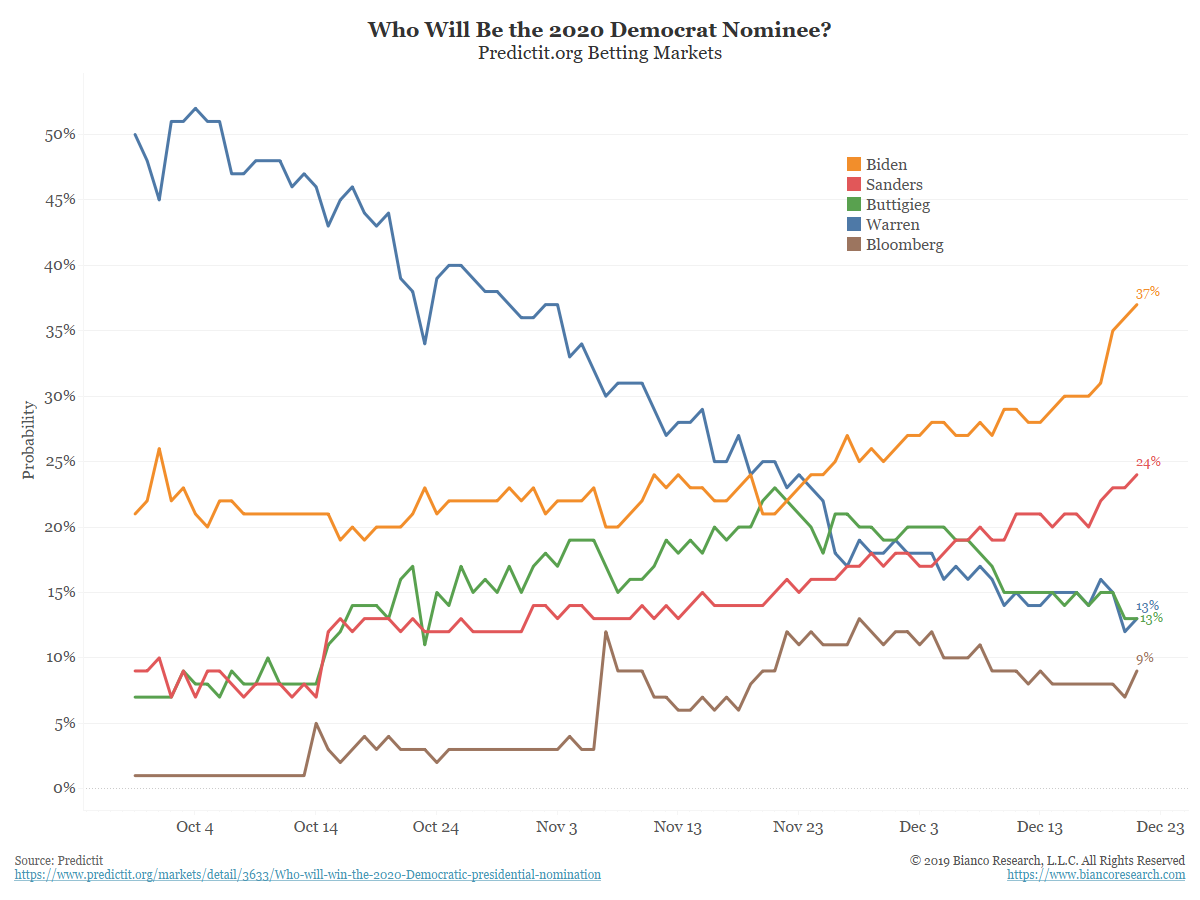
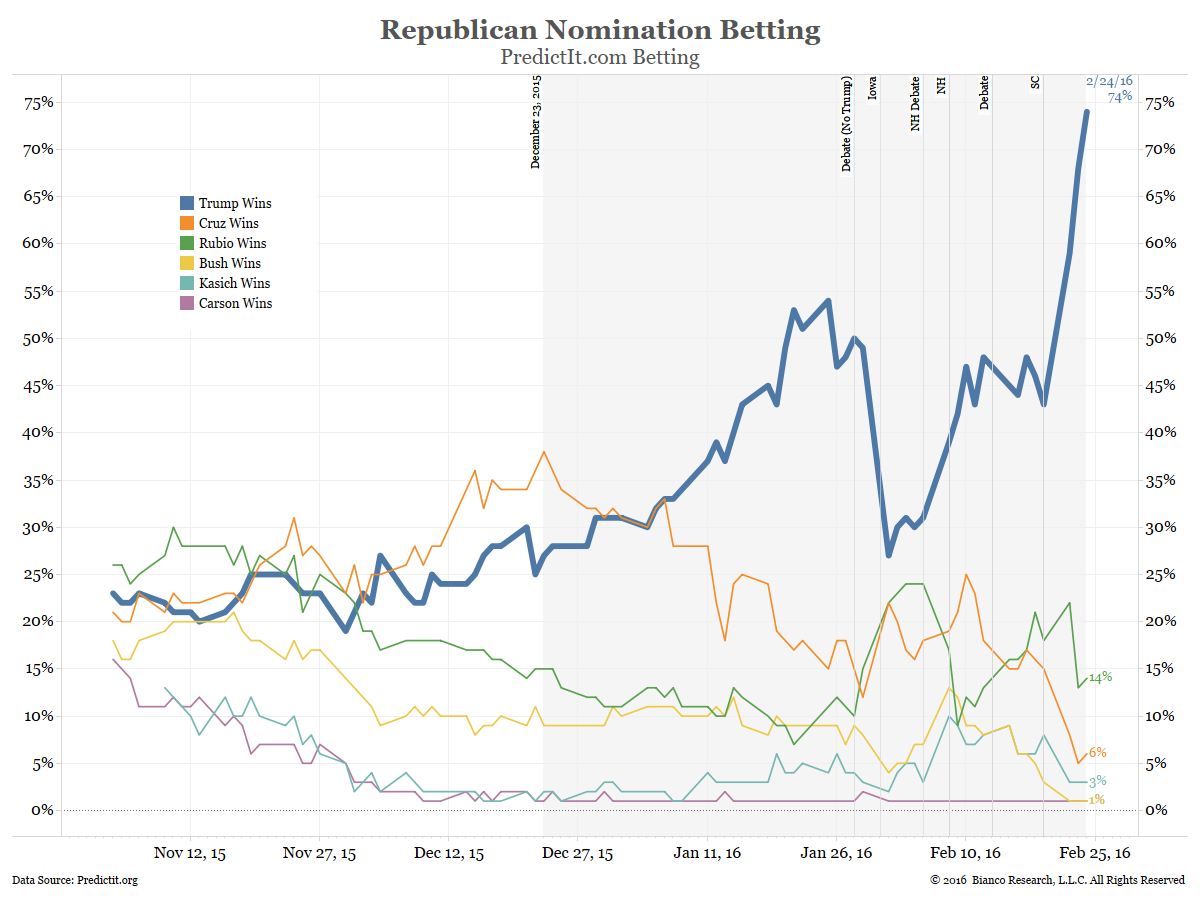
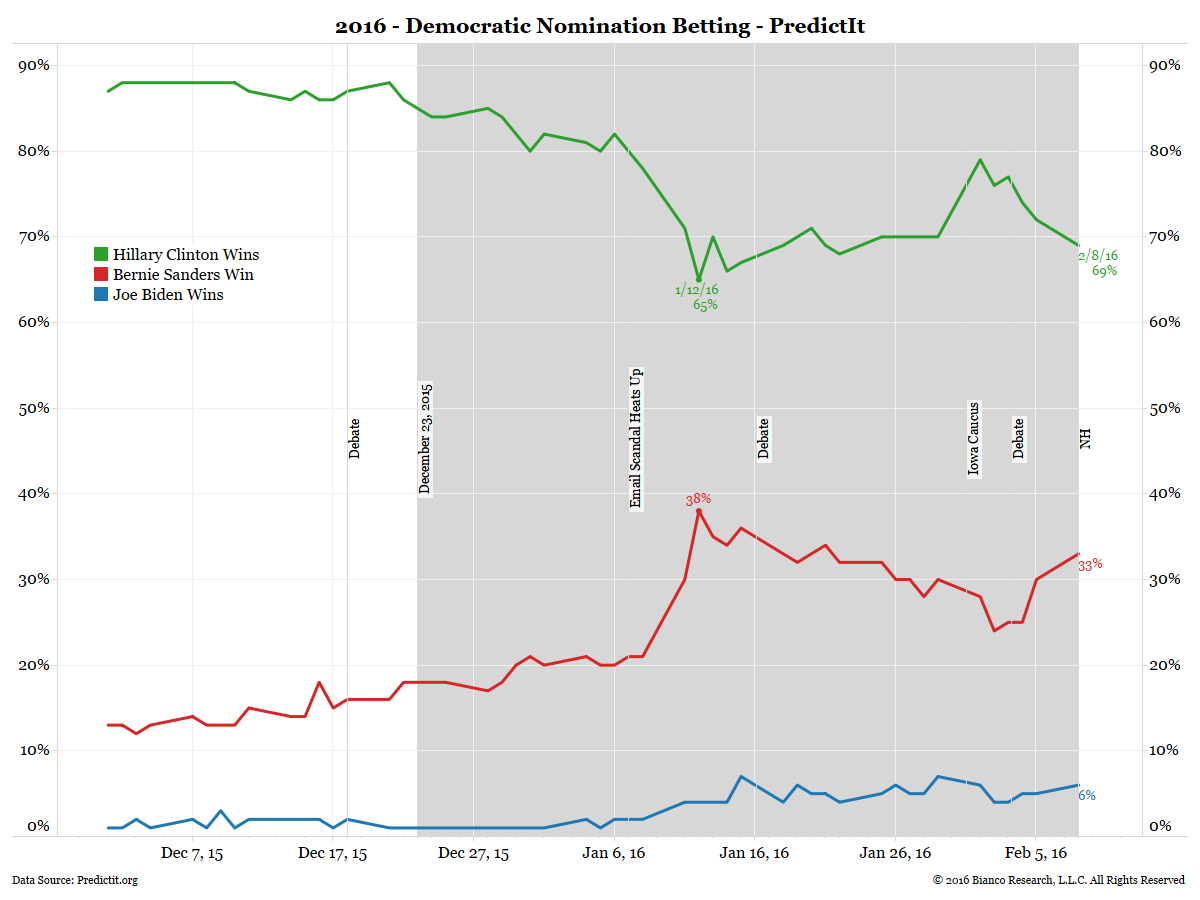
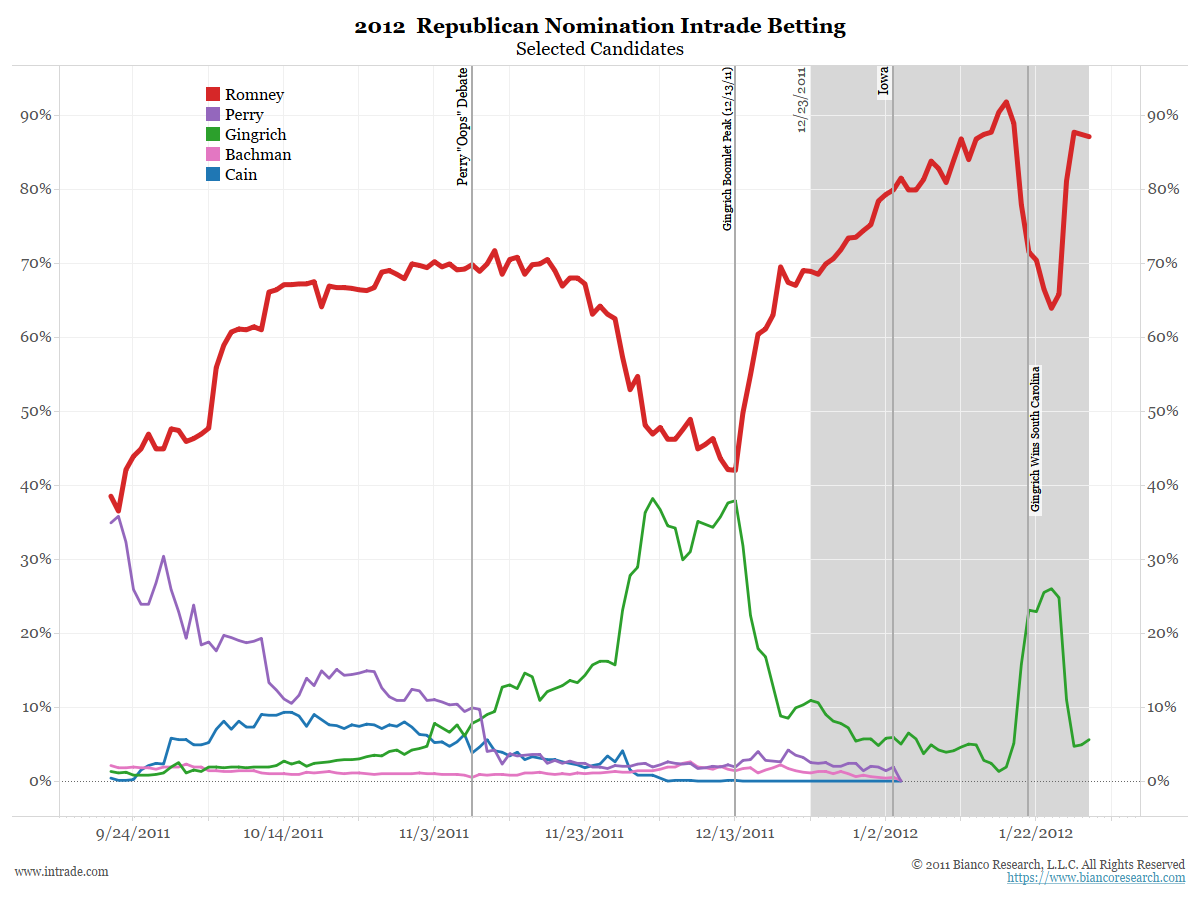
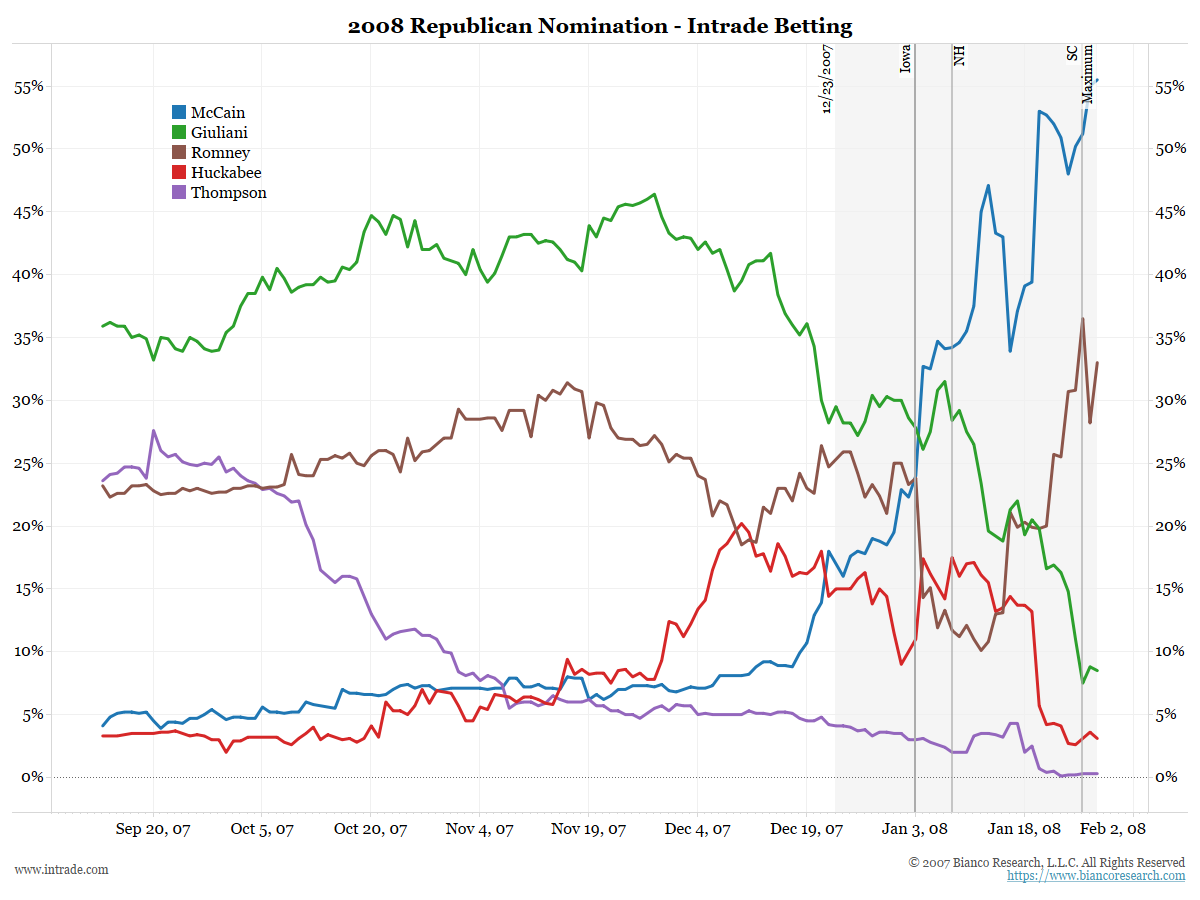
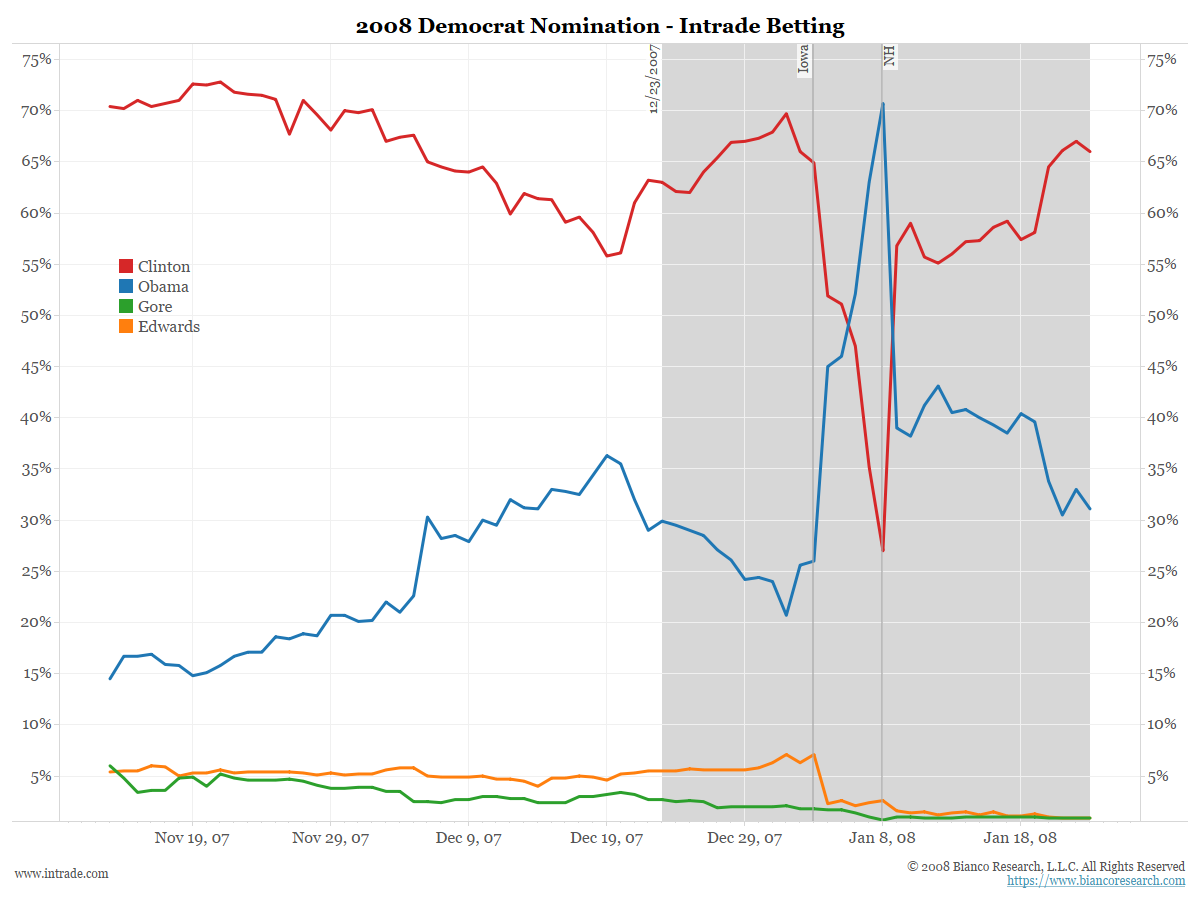
With the election still roughly a year away, there is plenty of time for candidates’ odds to shift. In fact, a look at recent history shows only two candidates who led at this point in the process in previous elections actually won the nomination – Hillary Clinton in 2015 and Mitt Romney in 2011. Both lost the general election.
Below is a quick list of candidates who led roughly a year prior to the election, but did not get the nomination:
As of this writing, Joe Biden leads the betting markets for the 2019 nomination.